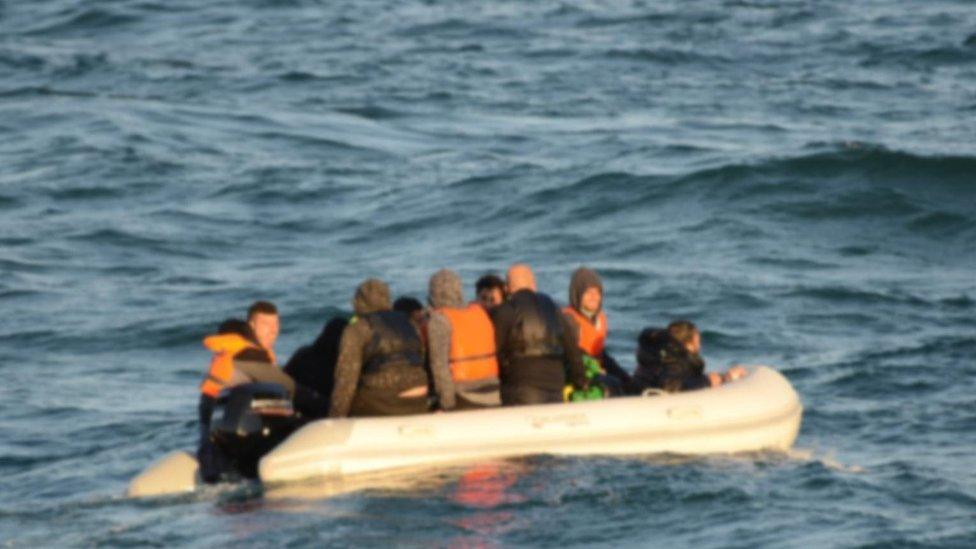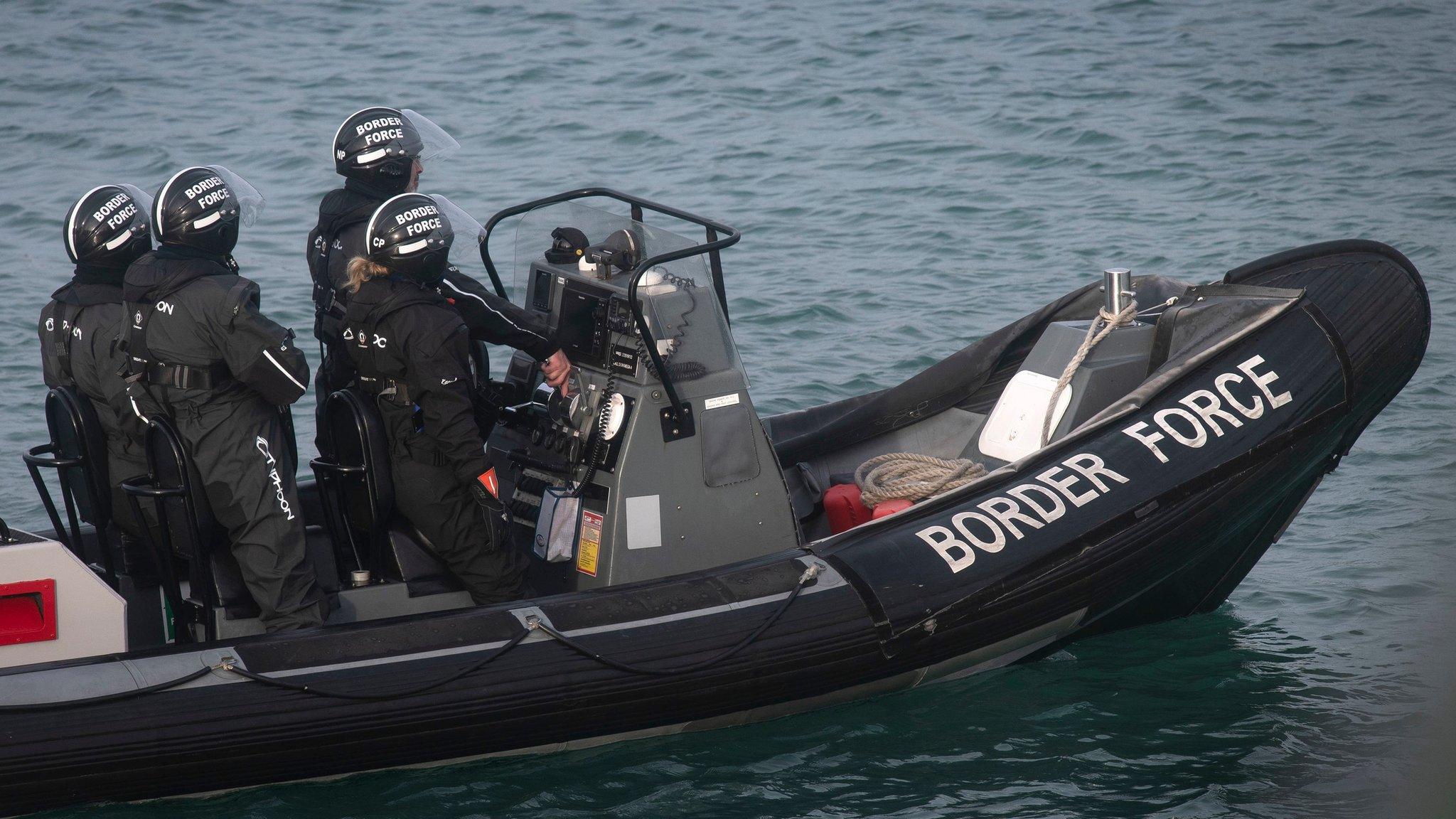UK and France promise new migrant crossings plan, says minister
- Published
Chris Philp said the crossings were “unacceptable" to the French and UK governments.
The UK and France are working on new measures to stop migrants from crossing the English Channel, an immigration minister has said.
Chris Philp said French officials had agreed the crossing should be made "unviable" during talks in Paris.
He added the UK was prepared to support the plan financially, but it was too early to make commitments.
More than 4,000 people have successfully crossed the Channel on small boats so far this year.
Speaking after the talks, Mr Philp said the UK and France had expressed a "shared commitment" to stem a recent rise in channel crossings.
He added that the UK's new Clandestine Channel Threat Commander, Dan O'Mahoney, would hold further talks in France next week.
The Ministry of Defence said on Monday it had sent an RAF Atlas transport aircraft to help Border Force spot small boats trying to cross the Channel.
The Home Office had asked defence chiefs for help to deal with migrants making the crossing.
Around 700 people have been brought to the UK since last Thursday, including 74 migrants on six vessels intercepted on Tuesday.
Mr Philp said French authorities had intercepted over a thousand people this year, but the number making the journey was "completely unacceptable".
'Working at pace'
He said a new "comprehensive action plan" would aim to make sure migrants would "have no reason at all to come to France in the first place".
"We have worked on a joint operational plan with the objective in mind of completely cutting this route," he said.
"We're going to be working at pace in the coming days to make that plan a reality."
Asked for details of the plan, he said he would not discuss "operational" matters yet, but "a number of measures, some of them new" were being discussed.
Migrants setting out to sea 20 miles east of Calais were filmed by a BBC team, as Gavin Lee reports
Mr Philp said the UK was hoping to take a "fresh approach" to the issue of migrant returns after its post-Brexit transition period, due to end in December.
The government has said it wants a new agreement to replace the main EU law in this area, the Dublin regulation, external, which the UK has to follow until then.
The regulation allows EU states to transfer asylum seekers to other countries in the bloc to have their applications processed.
Mr Philp said the law contained a "number of constraints" which made transferring asylum seekers "a little bit harder than we would like."
- Published7 August 2020

- Published9 September 2021
